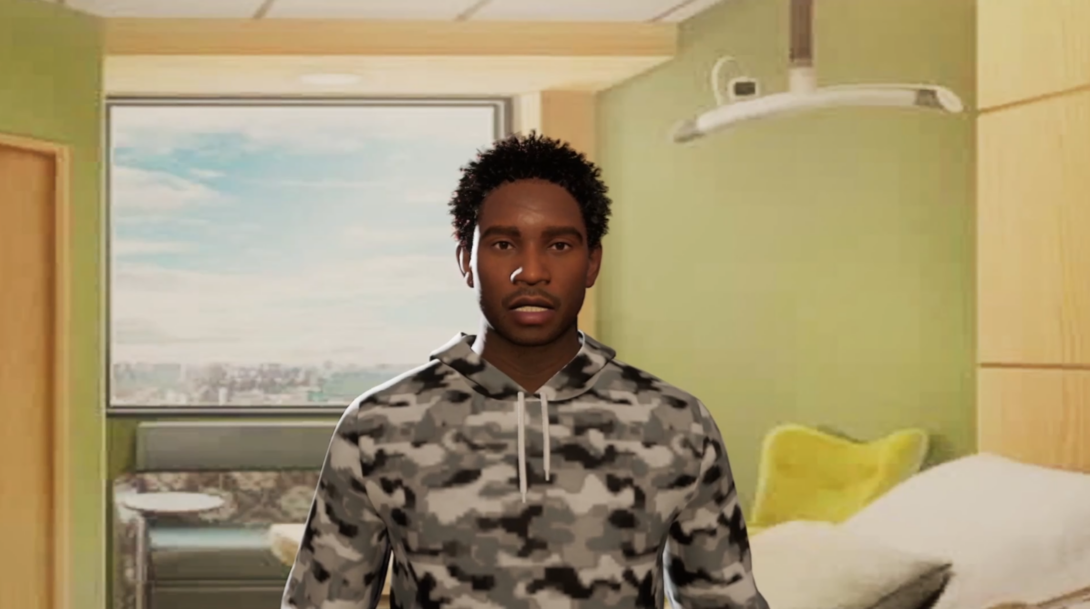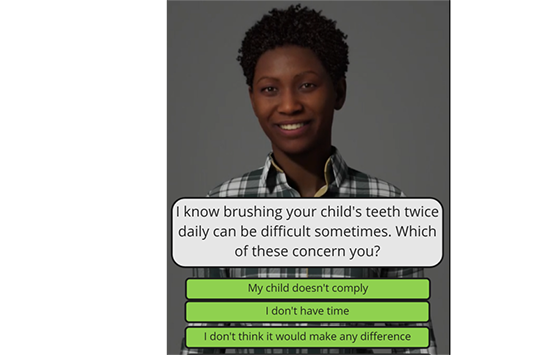Projects
Below are current projects dedicated to improving healthcare disparities through virtual experiences.
Enhancing QUality of Instruction using TechnologY (EQUITY)

Enhancing QUality of Instruction using TechnologY (EQUITY)
The project aims to develop EQUITY, a virtual patient system, that enables medical learners to identify, reflect on and mitigate revealed racial biases.
Brain - Donation among Older miNority Adults using virTual Experiences (B-DONATE)

Brain – Donation among Older miNority Adults using virTual Experiences (B-DONATE)
Brain donation rates among Latinos need to be increased to improve our understanding of Alzheimer’s disease and related dementias among Latinos. Brain donation interventions that can engage both potential donors and family members and can be delivered at scale in Spanish for wider accessibility can potentially improve brain donation rates among Latinos. The
proposed research will result in the development of a scalable web-based virtual human brain donation intervention that can engage both potential donors and family members verbally in Spanish.
AI - Providing Resources and Outreach to Middle-aged Older adults Through Online and Realistic Agents (AI-PROMOTORA)

AI – Providing Resources and Outreach to Middle-aged Older adults Through Online and Realistic Agents (AI-PROMOTORA)
Our overarching goal is to reduce disparities in Alzheimer’s disease and related dementia (ADRD) awareness among Latinos by developing digital interventions. Latinos have the highest proportion of older adults with ADRD in the United States and are more likely to develop ADRD at an earlier age. Despite this, there is a significant knowledge gap regarding ADRD, particularly among Latino caregivers. Latino caregivers have reported not knowing enough about ADRD, which is crucial for recognizing symptoms, navigating caregiving roles, and providing support. Researchers have implemented various interventions to address this knowledge barrier, but each has limitations. To address the limitations of existing intervention delivery approaches, the proposed study explores the perceptions and acceptability of AI-generated characters to improve ADRD understanding among Latino caregivers.
Using digital twins of doctors in patient care

Using digital twins of doctors in patient care
In this work, we examine the perceptions of doctors in potentially utilizing digital twin of doctors (DTD) in patient care. A DTD is a digital replica of a doctor that facially resembles (at least) a doctor. Understanding doctors’ perceptions about DTDs is critical to determining the adoption of DTDs by doctors.
Improving Oral Health Using Relatable Virtual Agents for Young Children (IVORY)

Improving Oral Health Using Relatable Virtual Agents for Young Children (IVORY)
This project aims to design and evaluate the efficacy of IVORY, a web-based virtual human intervention, to provide at-home personalized oral health interventions for caregivers of children (ages 3-6 years) to improve adherence to tooth-brushing with fluoride toothpaste.